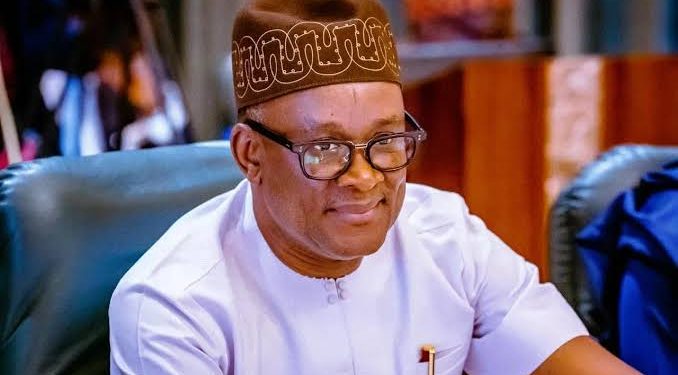The Federal Government has announced a major policy shift aimed at moving Nigeria away from reliance on outdated, imported industrial equipment toward adopting globally competitive, sustainable manufacturing solutions. The move is part of a broader strategy to reposition the country’s manufacturing sector for global relevance and economic sovereignty.
Speaking at the 2025 edition of the Nigeria Manufacturing and Equipment/Nigerian Raw Materials Expo in Lagos, the Minister of State for Industry declared that Nigeria can no longer afford to build its manufacturing base on used industrial scrap imported from abroad.
He described such dependence as a form of neo-colonialism, stating, “We must move from importing used, you know, industrial scrap… to deploying world-class solutions built for resilience, for sustainability.” He emphasized that true industrial growth will only come through the use of smart, modern technologies developed for local conditions.
According to the minister, manufacturing currently contributes less than 10 percent to Nigeria’s GDP, a figure the government is determined to increase by scaling up domestic production and adding value to raw materials. “We must produce, we must produce, and we must produce,” he said, insisting that rural development and true industrialisation depend on local capacity.
A new National Industrial Policy, currently under review, is central to this shift. The policy will prioritise technology adoption, equipment financing, and power integration as the foundation for manufacturing innovation. The framework is also designed to support President Bola Tinubu’s Renewed Hope Agenda by promoting diversification across key sub-sectors such as agro-processing, textiles, and automotive production.
The minister praised the collaboration between the Manufacturers Association of Nigeria (MAN), the Raw Materials Research and Development Council, and other stakeholders in crafting what he described as a “fit-for-purpose” industrial policy.
As part of the strategy to promote local innovation, the Federal Government plans to launch a Made-in-Nigeria campaign through the Pro-Nigeria Secretariat. The campaign will support product certification, provide access to digital marketplaces, and enhance media visibility for local manufacturers and equipment developers.
Efforts are also being harmonised across multiple government agencies including the Bank of Industry, the Nigeria Export Processing Zones Authority, and the National Agency for Science and Engineering Infrastructure to ease access to affordable, smart manufacturing technologies for Micro, Small, and Medium Enterprises (MSMEs). The government intends to drive this through partnerships with development finance institutions and innovation hubs.
The minister urged local manufacturers to go beyond viewing the Expo as a commercial opportunity and instead use it as a launchpad for strategic partnerships, modular equipment innovations, and collaboration with academic institutions to co-create Nigeria-specific solutions. He described the moment as a call to action, saying, “Let it be said that this Expo enabled partnerships that retooled the soul of Nigerian manufacturing.”
In his remarks, the President of MAN described the expo as more than a showcase of capabilities—it was a platform to explore innovation, sustainability, and strategic partnerships that could reposition the country’s industrial trajectory. He encouraged industry players to reflect on how the ideas shared at the event could reshape their operations and business models.
This year’s expo, themed “Accelerating Sustainable Manufacturing Through Cutting-Edge Equipment and Technology Solutions,” featured panel discussions on innovation, technology transfer, women in manufacturing, and international collaboration. Participants included the Indian Consul General in Lagos, CEOs of global and regional tech firms, and representatives from development organisations.
The three-day event convened key players from government, the private sector, academia, and innovation hubs, all focused on advancing Nigeria’s capacity to produce locally, reduce dependence on foreign equipment, and build a future-ready, inclusive industrial economy.










